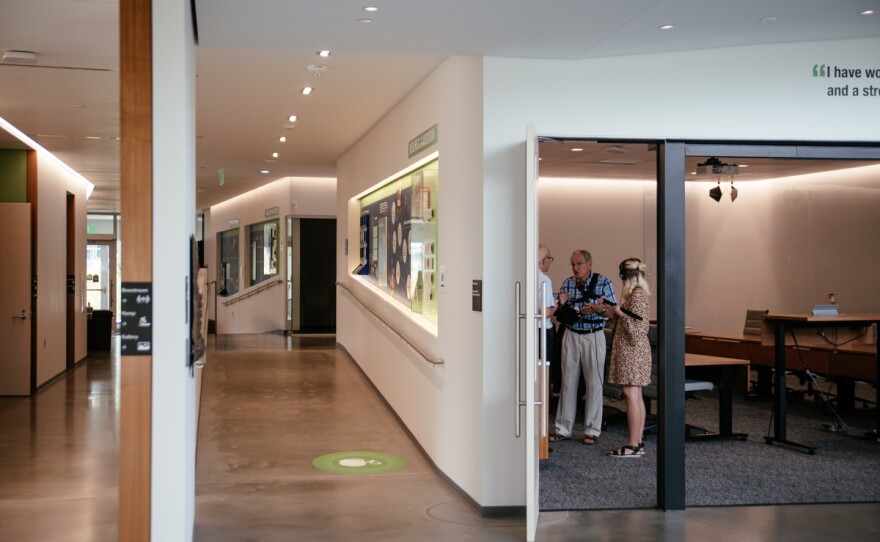Former U.S. Sen. Tom Harkin is renowned for authoring the Americans with Disabilities Act, which was signed into law in 1990.
As he prepared to retire after serving 40 years in Congress, the senator founded The Harkin Institute for Public Policy & Citizen Engagement in 2013 to carry on his legacy and policy work primarily on issues of labor and employment, people with disabilities, retirement security and wellness and nutrition.
Now celebrating its 10th anniversary, The Harkin Institute is headquartered at the Tom and Ruth Harkin Center on the Drake University campus in Des Moines. The two-story building was completed in late 2020, though a dedication was held off until August 2022 because of the COVID-19 pandemic.
A year later, Harkin says he has yet to learn of another building in the nation that is more accessible for people with disabilities than the Harkin Center.
The building was designed for and by people with all different abilities to be a space that is welcoming to everyone who uses it. It features a wide ramp that gradually ascends to the second floor by wrapping around the building’s interior. Spaces and pathways are large to support sign-language conversations and multiple wheelchair users. Even the outlets in the wall are raised slightly to be easier to reach and color contrasted against the wall to be easier to see. Every restroom is gender-inclusive.
On a tour of the building with IPR's River to River, Harkin said the ramp is an especially important feature, as it gives everyone who enters the building "the same choice" for how to get to the second floor, and doesn't force those with mobility issues to find the elevator.
“I don't think there is a building that's designed from the ground up, to be fully inclusive, to have universal design, so that everyone is welcome,” Harkin said.
A look inside the Harkin Center
Harkin says the building explores innovation beyond even his own bill, pushing past mere ADA compliance to create a state-of-the-art building. To do so, Drake University hired Kevin Nordmeyer of BNIM, a pioneer in sustainable and inclusive design in Iowa, as the principal architect. Nordmeyer was diagnosed with multiple sclerosis more than 20 years ago and over the course of the design process with the institute's Core Disability Advisory Committee, his physical abilities changed. He went from having an occasional limp, to using a cane, to now relying on a motorized wheelchair.
“Now I'm sitting in a wheelchair, and so my progression of this disease of becoming more disabled has helped inform me of how to be more empathetic for those with disabilities like I have,” Nordmeyer said.

The lobby of the building is filled with paper butterflies etched with Braille. Designed by the institute's first artist fellow Jill Wells, each butterfly carries an excerpt from the ADA. The installment was inspired by a man who exclaimed, “I now feel as free as a butterfly that I can fly,” after Harkin’s act was signed.
Harkin says the building shows that if buildings are constructed with universal design, people with varying abilities can achieve anything their peers can.
“People without sight can do all kinds of things, or people that are in wheelchairs can do any kinds of things, or people who are deaf -- as long as society is structured in a different way, with universal kind of design,” he said. “That's the idea.”
In his retirement, Harkin still advocates for disability rights. Right now, he says he’s most focused on increasing employment rights for people with disabilities, which has been difficult.
“I made sure when we drafted the ADA there [were] five titles, and this Title I employment, because I figured employment is the key,” he said. “A good job, a decent job, not only for income, but just for being part of our economic and social life.”
The ideas brought to life in the building were published as a book titled on one side as All: The Making of The Tom and Ruth Harkin Center, and on the other All: A Guidebook of Strategies for Inclusive Design, where the key principles of design are organized with accessibility at its center.
“There's an old saying in the disability community, being ‘Nothing about us without us,’” Harkin said. “Well, if you're going to build a building, it's going to be accessible.”















